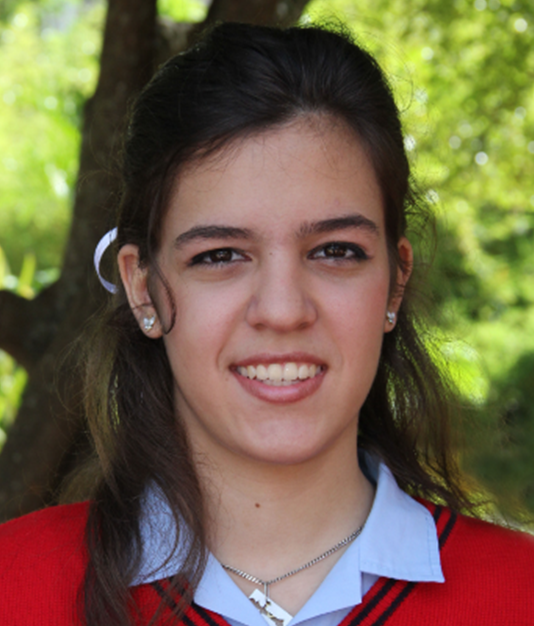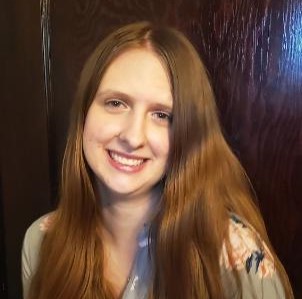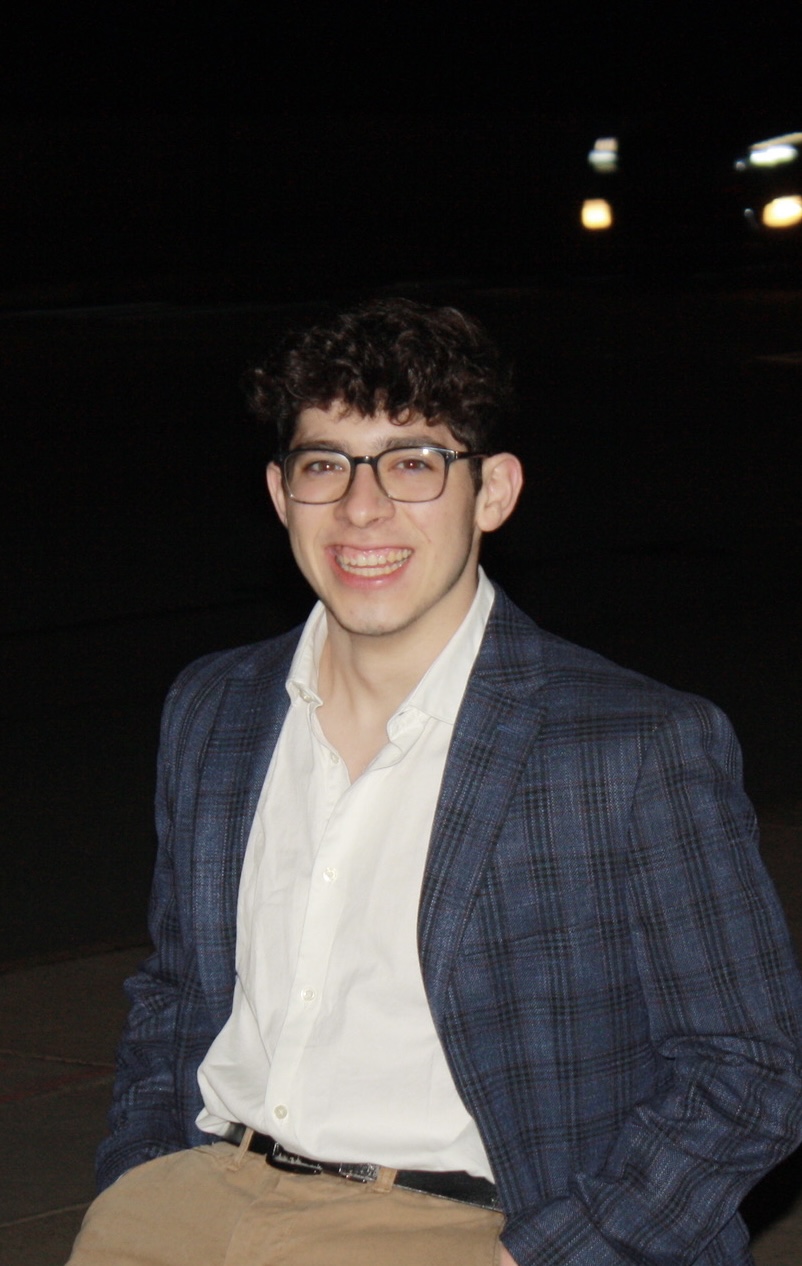

Our Approach
We believe in useful collaboration, hard work, and a healthy amount of fun.
Our group consists of both graduate and undergraduate students. For position opportunity availability, email chmielus@pitt.edu!
Scientific curiosity is very important to us. We enjoy having a diverse group where everyone has a desire to learn while contributing to the scientific knowledge base.

Our Story

Markus Chmielus, PhD began working at the University of Pittsburgh in 2013. Jakub joined the group as the first graduate student, then Amir and Erica. As they graduated with their PhDs, Max and Katerina joined and graduated as Masters. Then Aaron, Ali, Eric and Pierangeli are our newest additions. Many undergraduates have worked in the group as well, contributing in invaluable ways!
Alumni
Chuyuan Zheng – now at ANL
Jakub Toman, PhD – now at INL
Erica Stevens, PhD – now at Pitt’s MMCL
Katerina Kimes, Ms – now at Westinghouse Electric
Amir Mostafaei, PhD – now a faculty at Illinois Institute of Technology
Rafael Rodriguez – now a graduate student at the University of Pittsburgh
Ruby Jiang – now a graduate student at Carnegie Mellon University
Kelsey Shields, UG – now at Estee Lauder
Danielle Brunetta, UG – now at Alcoa
RJ Bottome – now at Westinghouse Electric
John Davison
Kaylene Stocking
Xingjian (Dagger) Chen
Lorenzo Monteil
Tyler Paphlam, UG – now a graduate student with Dr. Ohodnicki at the University of Pittsburgh
Emma Dickinson, UG – now a graduate student at Northwestern University
Ryan Loebig
Maxwell McIntyre, MS
Colleen Hilla – now a graduate student at Ohio State University
Samantha Schloder – now at Kaiser Aluminum
Eamonn Hughes
Taylor Russo
Eli Sullivan
Yuval Krimer
Shannon Biery
Meredith Meyer
Raymond Mattioli
Jeffrey Martin
Grant Merkel
Warren Lester
Dinding Tan
Allison Marcus
Dr. Chmielus
Dr. Markus Chmielus is an Assistant Professor in the Mechanical Engineering and Materials Science Department since September 2013 with a Ph.D. in Materials Science and Engineering from the Technical University of Berlin and the Helmholtz Center for Materials and Energy, Germany, a postdoc at Cornell University 2010-13 and M.S. degrees in Aerospace Engineering (University of Stuttgart, Germany) and Materials Science & Engineering (Boise State University). Dr. Chmielus’s Advanced Manufacturing and Magnetic Materials Laboratory (AM³) performs research on functional and structural metals on the influence of production and processing parameters on the properties and microstructure.
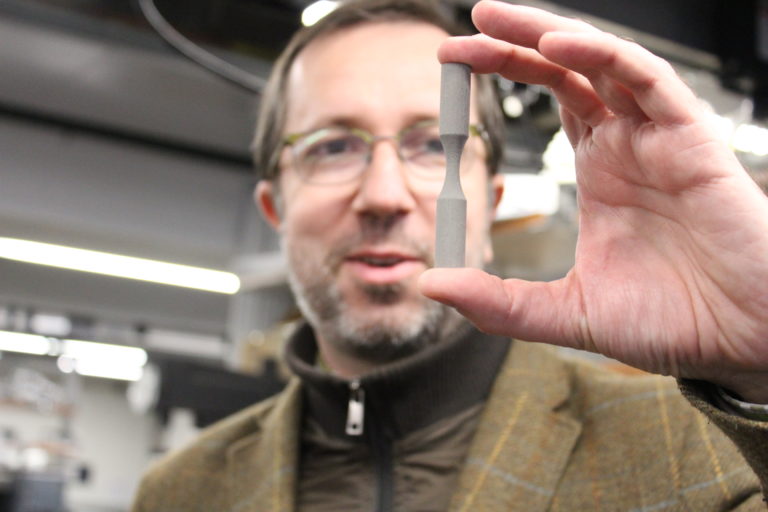
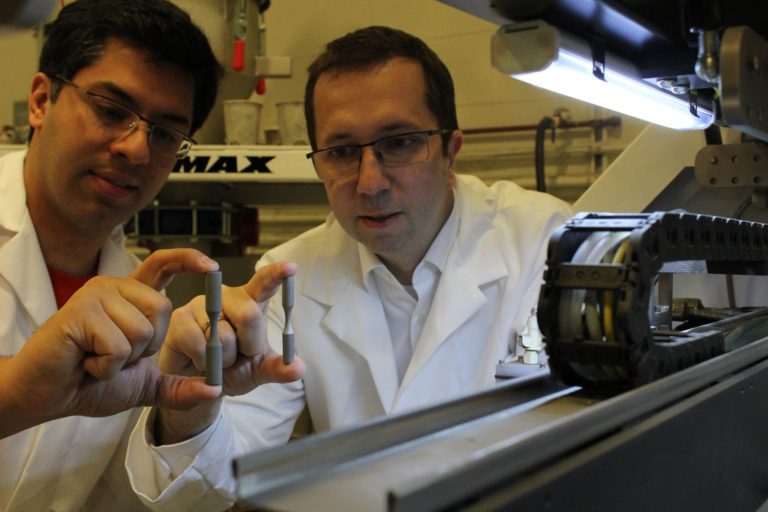

- chmielus@pitt.edu
- https://orcid.org/0000-0002-8688-6054
- https://scholar.google.com/citations?user=Z8obZg0AAAAJ&hl=en&oi=ao
- https://www.researchgate.net/profile/Markus-Chmielus
Teaching
Introduction to Materials Science concepts, phase diagrams, heat treatments, strengthening mechanisms and mechanical properties. The class includes hands-on projects of basic microstructural analysis of different application steels.
- Current
Experimental demonstrations of important structure-property relationships for metals, ceramics and polymers (Undergraduate).
- Past.
Methodology for materials selection in mechanical design processes. Includes: (i) design process and consideration, (ii) criteria for materials and their shape selection, and (iii) design case study. Mechanical components have mass; they carry loads; they conduct heat and electricity; they are exposed to wear and to corrosive environments; they are made of one or more materials; they have shape; and they must be manufactured. This course provides knowledge on how these activities are related (Undergraduate).
- Current.
Continuum mechanics concepts; elastic, plastic, and viscous deformation; strength in metals, ceramics, and polymers. Application of concepts to details of material tests (e.g., Tension, torsion, compression, hardness tests); metallurgical phenomena (e.g., Precipitate strain fields, dislocations, transformations, residual stresses, anistropy); failure (by brittle fracture, ductile fracture, creep, fatigue, wear, hydrogen effects); design of components for industrial use or research equipment (Graduate).
- Current.
This class is targeted toward students who want to learn more about additive manufacturing in general, different additive manufacturing techniques, and how they can be used to produce parts out of a large variety of materials. We will cover the general difference between subtractive and additive manufacturing, introduce and detail the advantages and disadvantages of energy beam based and non-beam based additive manufacturing methods, and discuss which materials can be additive manufactured. We will also describe as-printed microstructures and properties and their improvement through post-processing. Furthermore, elements of characterization, testing and qualification will be introduced. If circumstances permit, students will be able to tour the Additive Manufacturing Research Laboratory at the Swanson School of Engineering and potentially compare different AM methods in hands-on demonstrations (Graduate and Undergraduate).
- Current
- With Dr. Kuhn
This course offers a survey of micro-analytical, microscopy and diffraction methods that are widely used for the analysis of composition, chemistry, structure, scale and morphology of advanced materials. It introduces the most basic concepts required to understand experimental data obtained with these modern techniques. The main objectives of the course are to enable students to interpret and evaluate relevant data sets presented in the research literature and to identify experimental tools to solve a given Nano-research characterization problem. Some prerequisite basic knowledge of the structure of solid matter (e.g. Crystals and amorphous materials), diffraction methods (e.g. X-ray diffraction) and processing-property-structure relationships in materials is expected (Graduate).
- Past.
Contact Us
636 Benedum Hall, 3700 O’Hara St.
Pittsburgh, PA, 15261, USA
Email: chmielus@pitt.edu
Pitt webpage: https://www.engineering.pitt.edu/Markus_Chmielus/



